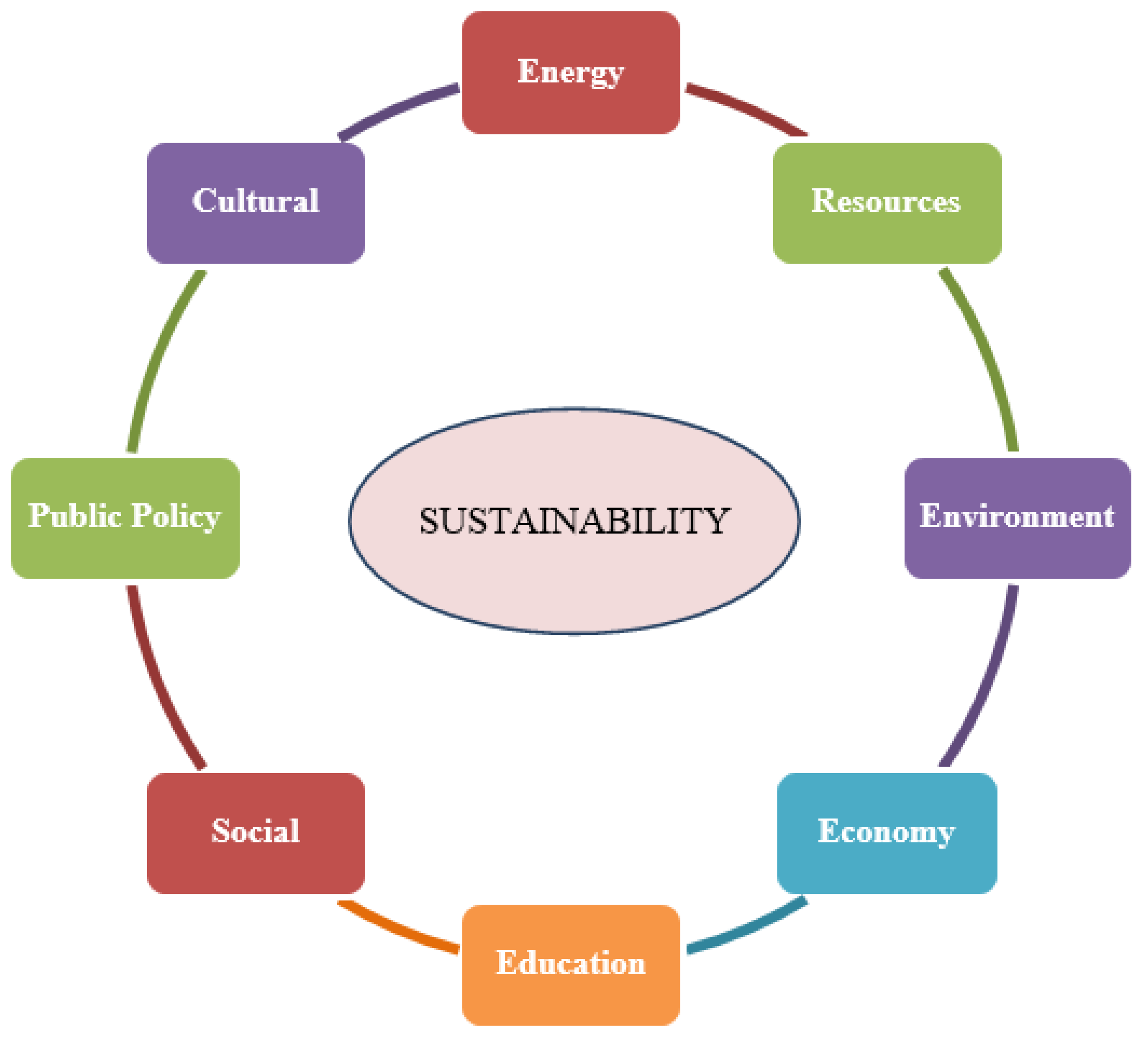
If you want your business to thrive in today’s world, it’s crucial to not only focus on profitability but also on sustainability. That’s where the role of business optimization comes into play. In this article, we will explore the importance of business optimization in sustainable business practices and how it can help your company achieve long-term success.
In a rapidly changing business landscape, companies need to adapt and find innovative ways to minimize their environmental impact while maximizing efficiency and profitability. Business optimization is the process of analyzing and improving various aspects of a business, including operations, processes, and strategies, to achieve optimal performance and outcomes. By implementing sustainable practices through business optimization, companies can reduce waste, conserve resources, and contribute to a healthier planet.
One of the key benefits of business optimization is its positive impact on the bottom line. By optimizing operations and processes, companies can streamline workflows, eliminate inefficiencies, and reduce costs. This not only leads to increased profitability but also creates a competitive advantage in the market. Moreover, sustainable business practices are highly valued by consumers and investors alike. By demonstrating a commitment to sustainability, companies can attract environmentally-conscious customers and investors who prioritize ethical and responsible business practices. So, let’s dive deeper into how business optimization can help your company embrace sustainable practices and pave the way for a brighter future.
The role of business optimization in sustainable business practices is crucial for long-term success. By optimizing processes, resources, and operations, businesses can minimize waste, reduce environmental impact, and enhance overall efficiency. This involves analyzing and improving various aspects such as supply chain management, energy consumption, waste management, and employee productivity. Through business optimization, companies can achieve sustainable growth, contribute to environmental conservation, and meet the expectations of socially responsible consumers.

The Role of Business Optimization in Sustainable Business Practices
Business optimization plays a crucial role in implementing sustainable practices within an organization. By focusing on efficiency, productivity, and waste reduction, businesses can significantly contribute to the overall goal of achieving sustainability. This article aims to explore the various ways in which business optimization can support and enhance sustainable business practices.
Understanding Business Optimization
Business optimization involves the continuous improvement of processes, systems, and strategies to maximize efficiency and effectiveness. It entails analyzing and streamlining operations to eliminate redundancies, minimize waste, and enhance productivity. The primary objective of business optimization is to achieve better results with fewer resources, ultimately leading to improved profitability and sustainability.
In the context of sustainable business practices, optimization focuses on aligning operations with environmental and social responsibilities. It seeks to minimize the ecological footprint of business activities while maximizing positive societal impacts. By integrating sustainability principles into the optimization process, businesses can create a win-win situation where financial success goes hand in hand with environmental stewardship.
Benefits of Business Optimization for Sustainability
Business optimization offers several significant benefits when it comes to promoting sustainable practices within an organization.
1. Efficient Resource Management: Optimization helps businesses identify areas of resource inefficiency and implement strategies to reduce waste. By optimizing energy consumption, water usage, and raw material utilization, companies can minimize their environmental impact and conserve valuable resources.
2. Cost Savings: Optimized processes lead to cost savings through reduced resource consumption, improved productivity, and streamlined operations. By eliminating unnecessary expenses, businesses can allocate their resources more effectively towards sustainable initiatives.
3. Improved Environmental Performance: By optimizing operations, businesses can reduce their carbon emissions, waste generation, and pollution levels. This contributes to a healthier environment and supports the transition to a low-carbon economy.
4. Enhanced Reputation: Adopting sustainable practices through business optimization helps build a positive brand image. Customers, investors, and other stakeholders are increasingly demanding environmentally responsible practices, and businesses that prioritize sustainability gain a competitive advantage in the market.
The Role of Optimization in Sustainable Supply Chain Management
Supply chain management plays a critical role in achieving sustainability goals. By optimizing every stage of the supply chain, businesses can minimize their environmental impact and promote responsible sourcing and production.
Efficient Inventory Management
Optimizing inventory management is crucial for sustainable supply chain practices. By utilizing advanced forecasting techniques and data analytics, businesses can reduce inventory carrying costs, minimize waste, and prevent overstocking. This ensures that resources are utilized efficiently, reducing the need for excessive production and minimizing environmental impact.
Collaborative Supplier Relationships
Optimization in supply chain management also involves fostering collaborative relationships with suppliers. By working closely with suppliers, businesses can ensure responsible sourcing practices, promote fair labor conditions, and encourage ethical production. This creates a more sustainable supply chain that aligns with the organization’s values and sustainability objectives.
Transportation and Logistics Optimization
Efficient transportation and logistics are crucial for reducing greenhouse gas emissions and minimizing the environmental footprint of the supply chain. Optimization techniques such as route optimization, load consolidation, and modal shift can significantly reduce fuel consumption and emissions. By implementing sustainable transportation practices, businesses can contribute to a greener and more sustainable future.

In conclusion, business optimization plays a vital role in driving sustainable business practices. By optimizing processes, systems, and supply chain management, businesses can minimize waste, improve resource efficiency, and reduce their environmental impact. The benefits of business optimization for sustainability extend beyond environmental considerations to include cost savings, enhanced reputation, and improved overall performance. Embracing optimization as a key strategy can help businesses achieve their sustainability goals while ensuring long-term success in a rapidly changing world.
The Role of Business Optimization in Sustainable Business Practices
- Business optimization ensures that resources are used efficiently to minimize waste and maximize productivity.
- By optimizing processes and operations, businesses can reduce their environmental impact and promote sustainability.
- Effective business optimization strategies can lead to cost savings and increased profitability.
- Implementing sustainable practices can enhance a company’s reputation and attract environmentally conscious consumers.
- Business optimization and sustainable practices go hand in hand, creating a win-win situation for both the business and the environment.
Frequently Asked Questions
What is business optimization and how does it relate to sustainable business practices?
Business optimization refers to the process of improving various aspects of a business in order to achieve maximum efficiency and productivity. It involves analyzing and streamlining operations, identifying areas for improvement, and implementing strategies to enhance overall performance. When it comes to sustainable business practices, optimization plays a crucial role in minimizing waste, reducing environmental impact, and maximizing resource utilization. By optimizing processes and systems, businesses can ensure that they operate in an environmentally responsible and sustainable manner.
For example, through optimization, a company can identify opportunities to reduce energy consumption, implement recycling programs, or improve supply chain logistics to minimize carbon footprint. Business optimization is essential for integrating sustainability into all aspects of a company’s operations and ensuring long-term success while minimizing negative environmental impacts.
How can business optimization contribute to cost savings in sustainable business practices?
Business optimization can significantly contribute to cost savings in sustainable business practices. By streamlining operations and eliminating inefficiencies, businesses can reduce waste and save money. For instance, optimizing energy usage through the implementation of energy-efficient technologies can lead to lower utility bills and reduced operating costs.
Furthermore, optimizing supply chain management can help businesses identify opportunities to reduce transportation costs, minimize packaging waste, and improve overall resource utilization. By identifying and eliminating unnecessary expenses, businesses can redirect those resources towards sustainable initiatives, such as investing in renewable energy sources or implementing recycling programs. Ultimately, business optimization enables companies to achieve both environmental and financial sustainability.
How does business optimization contribute to the overall sustainability of a company?
Business optimization contributes to the overall sustainability of a company by integrating sustainable practices into its core operations. By optimizing processes, systems, and resources, businesses can reduce their environmental impact, conserve natural resources, and promote social responsibility.

For example, through optimization, a company can identify opportunities to reduce waste generation, implement eco-friendly manufacturing practices, or improve product design to enhance durability and recyclability. By focusing on optimization, businesses can align their operations with sustainable principles and ensure long-term viability while minimizing their ecological footprint. Business optimization is an essential tool for driving positive change and fostering a sustainable future.
What are some examples of business optimization strategies that promote sustainable business practices?
There are several examples of business optimization strategies that promote sustainable business practices. One strategy is the implementation of lean manufacturing principles, which aims to minimize waste and improve efficiency throughout the production process. By identifying and eliminating non-value-added activities, companies can reduce resource consumption, optimize material usage, and improve overall productivity.
Another example is the optimization of supply chain management. By optimizing logistics, companies can reduce transportation emissions, improve delivery efficiency, and minimize packaging waste. Implementing reverse logistics, such as product take-back programs or recycling initiatives, is also an effective optimization strategy that promotes sustainability.
Furthermore, utilizing data analytics and technology to optimize energy usage, resource allocation, and waste management can significantly contribute to sustainable business practices. By harnessing the power of technology and data-driven insights, businesses can make informed decisions to reduce their environmental impact and enhance sustainability performance.
How can companies implement business optimization for sustainable business practices?
Companies can implement business optimization for sustainable business practices by following a systematic approach. It starts with conducting a comprehensive assessment of existing operations and identifying areas for improvement. This involves analyzing processes, systems, and resource utilization to identify inefficiencies and areas of waste.
Once the areas for optimization are identified, companies can develop and implement strategies to streamline operations, reduce waste, and enhance overall efficiency. This may involve adopting new technologies, reengineering processes, or implementing sustainable practices throughout the supply chain.
Furthermore, companies should establish clear goals, metrics, and targets to measure the effectiveness of their optimization efforts. Regular monitoring and evaluation are essential to ensure continuous improvement and identify further optimization opportunities. By integrating sustainability principles into the optimization process, companies can drive positive change and achieve long-term success in sustainable business practices.

Final Summary: The Crucial Role of Business Optimization in Sustainable Business Practices
In today’s rapidly changing business landscape, the need for sustainable practices has become more important than ever. As companies strive to minimize their impact on the environment and contribute to social well-being, business optimization plays a crucial role in achieving these goals. By implementing efficient processes, leveraging technology, and prioritizing resource management, businesses can not only reduce costs and improve productivity but also make significant strides towards a more sustainable future.
One of the key benefits of business optimization in sustainable practices is the ability to maximize resource utilization. By carefully analyzing and streamlining operations, businesses can identify areas of waste and inefficiency, leading to reduced energy consumption, lower carbon emissions, and minimized environmental impact. Additionally, optimization enables better inventory management, reducing waste and promoting circular economy principles.
Moreover, business optimization allows companies to adapt to changing market demands and consumer expectations. By embracing innovative technologies and digital transformation, businesses can optimize their supply chains, improve logistics, and enhance customer experiences. This not only drives profitability and competitiveness but also empowers businesses to integrate sustainable practices into their core operations.
In conclusion, the role of business optimization in sustainable business practices cannot be overstated. By prioritizing efficiency, resource management, and technological advancements, companies can achieve their sustainability goals while staying competitive in the market. It is through these strategic optimizations that businesses can pave the way towards a more sustainable and prosperous future for all.


